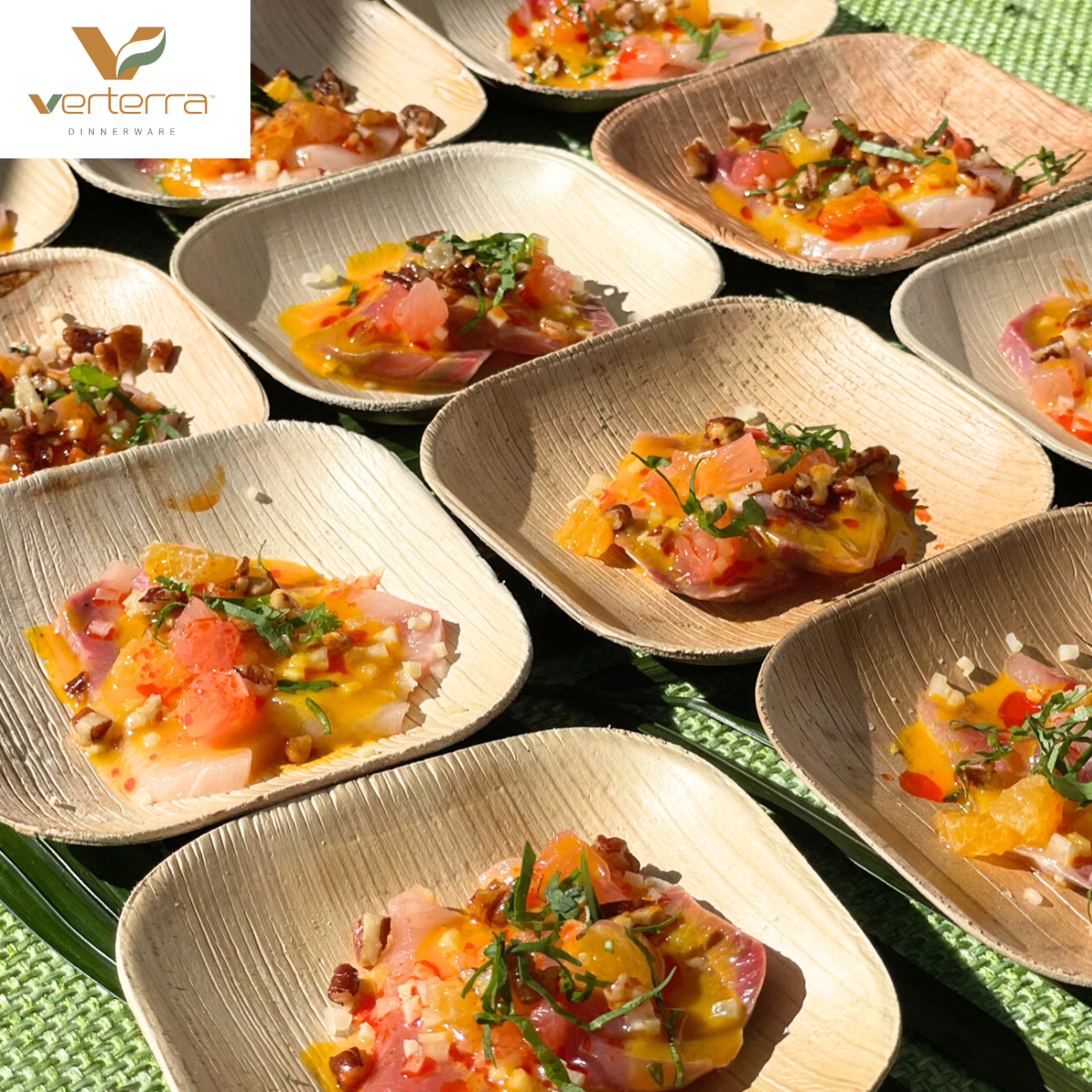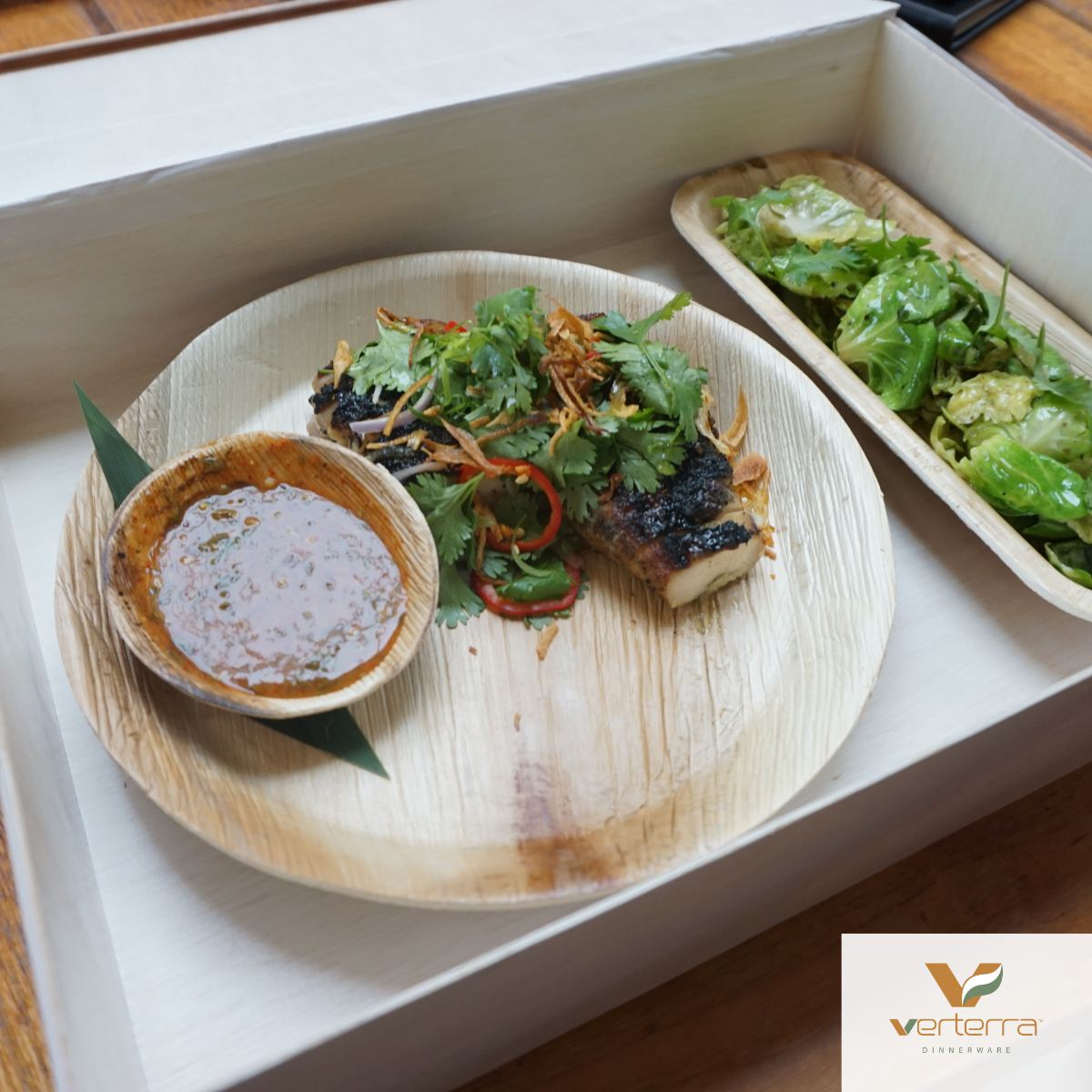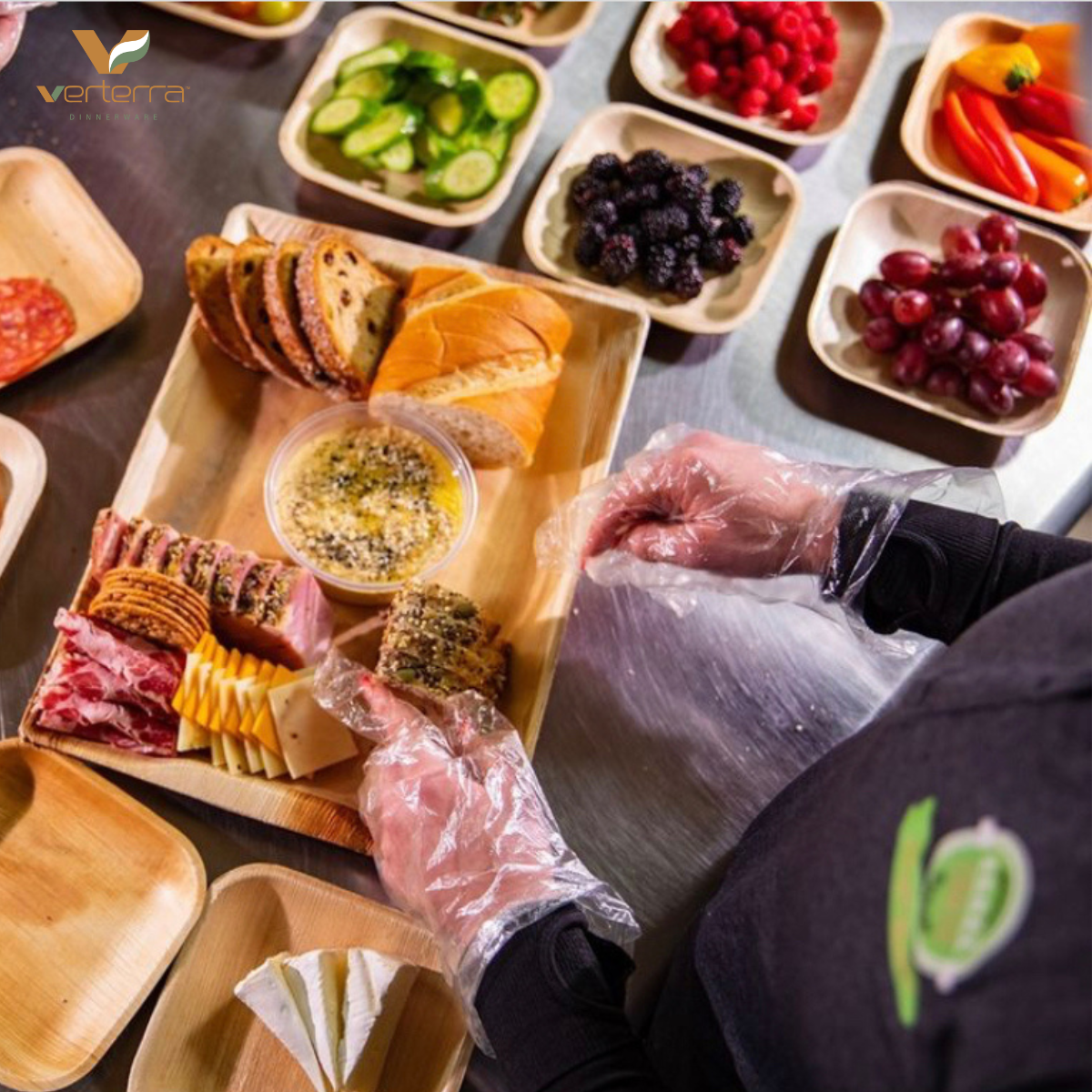
Paper Plates versus Palm Plates: A Fight for Sustainability
Paper Plates versus Palm Plates: A Fight for Sustainability
When it comes to choosing disposable dinnerware, the decision is often framed as a simple choice between convenience and eco-friendliness. However, not all "eco-friendly" options are created equal. In the quest for truly sustainable single-use dinnerware, we must examine the environmental impacts of commonly used materials. This post will compare traditional paper plates to VerTerra's innovative palm plates, shedding light on why palm leaf plates are a superior choice for both sustainability and environmental responsibility.
The Environmental Cost of Paper Plate Production
Paper plates, commonly perceived as a greener option due to their biodegradability and renewable source material, actually carry a hefty environmental toll. The World Wildlife Fund reports that paper production is heavily resource-intensive, necessitating large volumes of water and contributing significantly to deforestation, habitat loss, and biodiversity reduction.
Moreover, the manufacturing of paper plates is not just about using wood, the production process is fraught with high energy consumption and substantial waste generation, much of which includes harmful byproducts that affect both terrestrial and aquatic environments.
To achieve the unnatural white color often favored for paper plates, the wood pulp must be bleached. This process involves the use of chlorine, a hazardous chemical when used in large quantities. Chlorine is known to cause cancer, as well as reproductive and immune system damage. After bleaching, the chemical residues often end up being dumped into nearby water sources, causing severe environmental damage.
Composting and Biodegradability
Another advantage of palm plates over paper plates is their superior compostability. While paper plates can technically be composted, the reality is more complicated. Many paper plates on the market are coated with plastic or wax to prevent them from becoming soggy. This coating renders them non-compostable and non-recyclable, meaning they often end up in landfills where they take longer to break down, releasing methane and contributing to greenhouse gas emissions.
In contrast, palm plates are 100% compostable and biodegradable. They break down naturally within a few months when composted, turning into nutrient-rich soil that can support plant growth. This makes them an excellent choice for consumers who are conscious about their carbon footprint and wish to minimize their impact on the environment.
VerTerra Palm Plates: A Zero Waste Solution
VerTerra's palm plates offer a truly sustainable alternative. Our plates are crafted from naturally fallen palm leaves that are collected, cleaned, and heat-pressed into shape. This process does not involve cutting down trees, using chemicals, or wasting water. It's a completely mechanical process that ensures no harm to the environment.
What sets VerTerra palm plates apart is their zero-waste production cycle. Not only are the plates made from fallen leaves, but any excess material generated during their production is not discarded. Instead, it's turned into compost that is used to nourish the soil where palm trees grow, fostering a sustainable cycle that encourages more leaf production without the need for chemical fertilizers.
The Aesthetics and Functionality of Palm Plates
Sustainability doesn't come at the expense of style or functionality. VerTerra's palm plates are not only eco-friendly but also visually appealing, with a unique texture and natural patterns that make each plate one-of-a-kind. They are sturdy and suitable for both hot and cold foods, making them ideal for everything from casual picnics to elegant wedding receptions.
A Sustainable Choice for Consumers
Choosing VerTerra's palm plates over traditional paper plates is a simple yet effective way to reduce environmental impact. By opting for palm plates, consumers can enjoy the convenience of disposable plates without contributing to deforestation, water pollution, or waste generation.
In conclusion, when it comes to sustainability, not all disposable plates are created equal. VerTerra's commitment to a zero-waste production process, combined with the natural efficiency and beauty of palm leaf plates, makes them a superior choice for environmentally conscious consumers. Switching to palm plates helps preserve our planet's resources and supports a healthier ecosystem.
We invite you to make a sustainable choice that benefits both the environment and future generations. Choose VerTerra's palm plates for your next event and take a tangible step towards a more sustainable world.
Also in The Dirty Dish

Disposable Luxe: How Compostable Tableware is Reshaping the Event Industry
Gone are the days when disposable meant flimsy, boring, and environmentally careless. In 2025, today’s event professionals are embracing “disposable luxe”—a fast-growing movement that combines elevated aesthetics with eco-conscious choices at affordable prices, making sustainability not just a requirement, but a statement.

The Eco-Conscious Caterer’s Toolkit: Essentials for Modern Events
Clients are no longer just asking what’s on the menu—they’re asking how it’s being served. Today’s tastemakers want elegant, low-waste events that impress guests and align with their values. That’s where Verterra comes in.
In this blog, we break down exactly how to create a stunning, sustainable setup using just five compostable essentials. Whether you’re catering a backyard tasting or a high-end corporate soirée, this is your go-to guide for effortless eco-luxury.
🌿 Sustainable never looked so good.

The Ultimate Guide to Food Boats
Food boats are more than just a convenient way to serve meals—they're a game-changer for eco-conscious food service businesses. Verterra is SETTING THE TABLE FOR A SUSTAINABLE FUTURE for casual cafés to high-end catering, these biodegradable, stylish, and durable containers offer a sustainable alternative to plastic. But not all food boats are created equal. Verterra takes it to the next level with their innovative, chemical-free designs made from renewable materials like kraft paper and balsa wood. Want to know why top chefs and event planners choose Verterra? Read on to discover the ultimate guide to food boats and how they can transform your food presentation while protecting the planet.
